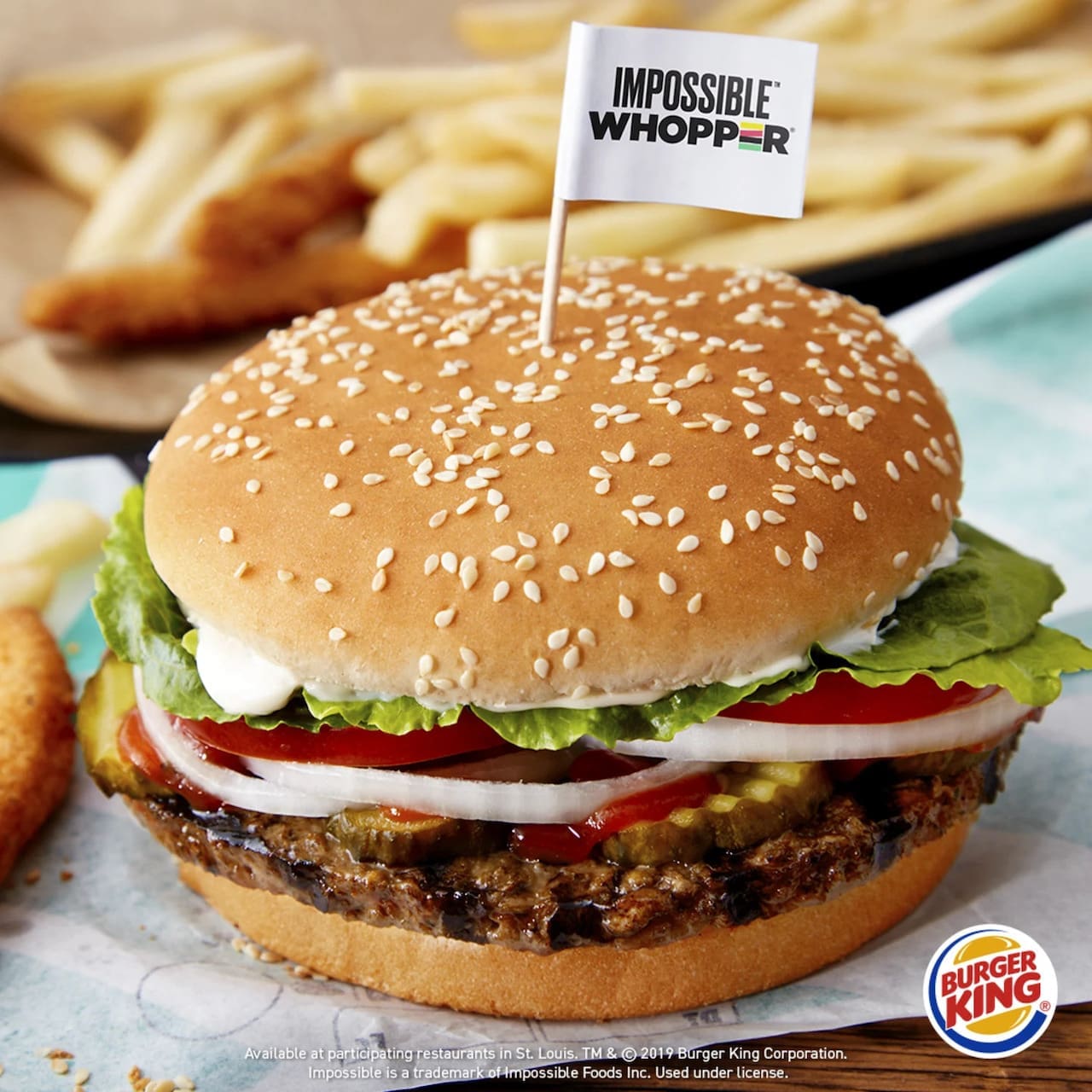On April 1st, Burger King announced it was testing the Impossible Whopper, a meat-free version of its classic Whopper made with the Impossible Burger, at 59 locations in Saint Louis, MO. Here, Mintel Foodservice analysts Amanda Topper and Trish Caddy weigh in on the launch and its future success.
 Amanda Topper, Associate Director of Foodservice Research, US:
Amanda Topper, Associate Director of Foodservice Research, US:
The timing of Burger King’s announcement on April 1st (April Fools’ Day) plays off consumer doubt that the burger-centric fast food chain would offer a meatless menu item. However, it appears the fast food restaurant segment is catching up to meat-free innovation already happening in other industries. Fast food chains including White Castle and Carl’s Jr. already offer the Impossible Burger, as do a variety of full service restaurants including Red Robin and The Cheesecake Factory. However, if Burger King’s initial tests in St. Louis go well, the Impossible Burger would get its largest restaurant distribution to date.
The Impossible Whopper is a bold move for a meat-centric chain like Burger King, and the restaurant’s size has the ability to provide consumers a non-meat alternative at a reasonable price point (the Impossible Whopper costs about one dollar more than the traditional Whopper).

Burger King realizes the opportunity to appeal to diners seeking a red-meat alternative. Nearly one in five US consumers has reduced their red meat consumption compared to a year ago, while nearly two in five are trying to add more plant-based foods into their diet, according to Mintel research on plant-based proteins. Initial reviews of the Impossible Whopper suggest it has a striking resemblance to the original Whopper – a positive for Burger King given that more than half of consumers agree meat alternatives should closely mimic the taste of meat. This is likely to appeal to diners who enjoy traditional burgers but might be looking for an occasional alternative.
Mintel research indicates that consumers, beyond those following vegetarian or vegan diets, are looking for plant-based proteins that can satisfy their desire for reduced meat consumption, whether for health, ethical, or environmental reasons. Offering a plant-based burger that mimics the taste and format of a traditional burger is an approachable way to introduce diners to meat alternatives.
If successfully rolled out to all Burger King locations, other fast food chains will feel the pressure to offer their own plant-based burger. Notably, McDonald’s has yet to launch a meat-free burger in the US (although it offers meat-free items outside the US). Burger King’s launch has the potential to be big business for the chain, and make meat-free burgers like the Impossible Burger even more mainstream.
 Trish Caddy, Senior Foodservice Analyst, UK:
Trish Caddy, Senior Foodservice Analyst, UK:
While the Impossible Whopper is currently only being trialled in the US, it’s interesting to examine whether the concept would be successful in the UK.
In recent years, Veganuary has truly helped boost the popularity of vegan and flexitarian diets among British consumers. Vegan dishes had once been hard to find, with limited choices such as salads and nut roasts available at the bottom of main menus. Today’s vegan options are all about encouraging menu innovation around unique flavours, ingredients, preparations and presentations that make it more enticing even for meat-eaters to order plant-based dishes.
The rise of these flexitarians, or ‘incidental vegetarians’ – those who aren’t exclusively vegetarian or meat eaters – is evident, as 58% of diners say that they are eating more vegetables than they did a year ago.
Vegan and vegetarian diets represent opportunities for traditionally meat-centred operators, such as burger bars and chicken shops, to get creative by experimenting with vegan dishes that taste good and are well-presented. UK consumers are more likely to turn to familiar dishes as a stepping stone to help them through trying new foods without having to go too far into the unknown. The Impossible Whopper would allow them to try a plant-based product, but in a familiar format. Overall, sandwiches, wraps and burgers have been at the forefront of flavour innovation, and the variety of options available at street food markets in the UK continues to impress.
The real challenge for Burger King’s Impossible Whopper is that in the UK, 39% of diners agree that ‘fake meat’ products (eg soy-based, seitan-based, etc) are not as healthy as fresh vegetables. The vegan burger, which contains plant-based substitutes including genetically modified yeast and processed soy, may therefore not chime with health-conscious consumers.












 Amanda Topper, Associate Director of Foodservice Research, US:
Amanda Topper, Associate Director of Foodservice Research, US: Trish Caddy, Senior Foodservice Analyst, UK:
Trish Caddy, Senior Foodservice Analyst, UK:


























